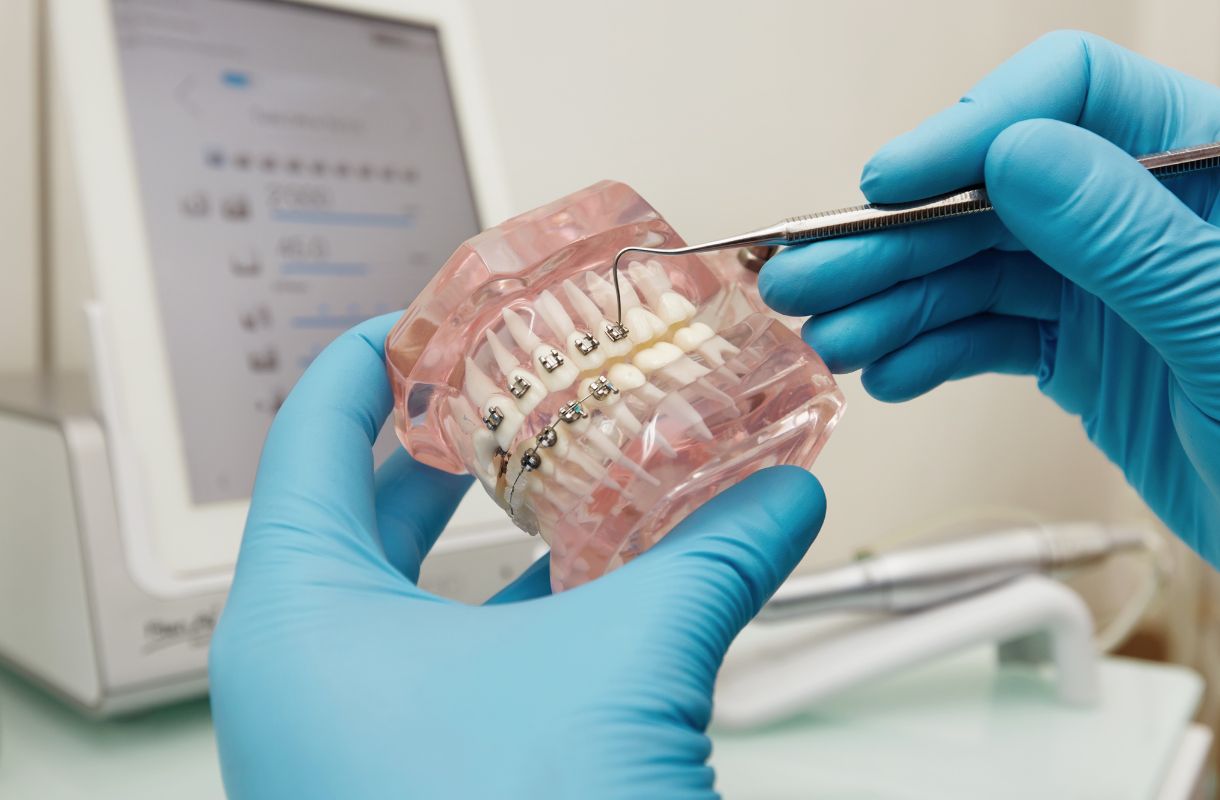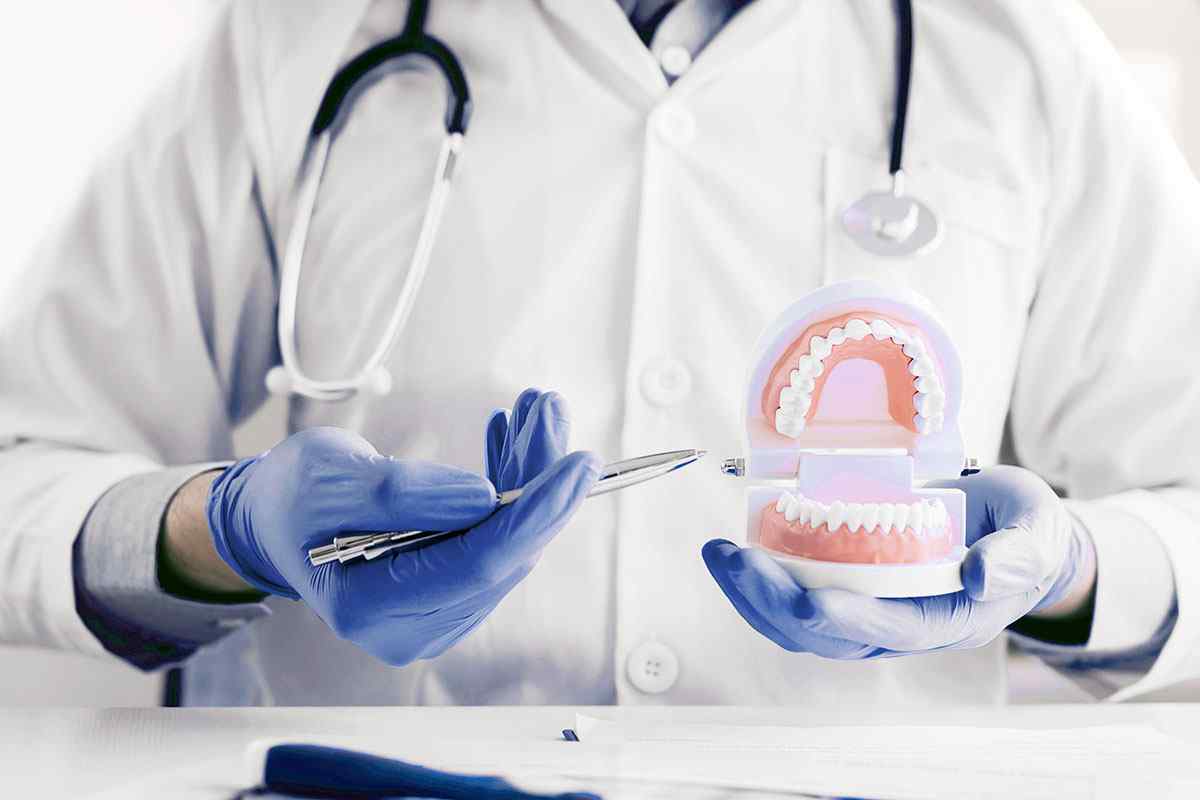What is
Wisdom Tooth Extraction?
Wisdom teeth, also known as third molars, are the last teeth to emerge in the back of the mouth, usually between the ages of 17 and 25.
While some people have enough room for these teeth to come in properly, many experience issues like pain, swelling, and infection when their wisdom teeth emerge.
In these cases, wisdom tooth extraction may be necessary to maintain good oral health.
Why Wisdom Teeth Need to Be Removed
There are several reasons why wisdom teeth may need to be removed:
- Impaction: If there is not enough room in the mouth for the wisdom teeth to fully emerge, they can become stuck or impacted in the gum tissue or jawbone. This can lead to pain, swelling, and infection.
- Misalignment: Wisdom teeth that come in at an angle or sideways can push against the other teeth, causing them to shift out of place. This can lead to crowding and bite problems.
- Decay or gum disease: Wisdom teeth are hard to clean and can be prone to decay and gum disease. Removing them can prevent these issues from developing or worsening.
- Cysts or tumors: In rare cases, wisdom teeth can cause cysts or tumors to form in the jaw. Removing the teeth can help prevent this.
The Wisdom Tooth Extraction Procedure
Wisdom tooth extraction is a common oral surgery procedure that is typically performed by an oral surgeon or dentist.
Here’s what you can expect during the procedure:
- Anesthesia: The area around the wisdom tooth will be numbed with a local anesthetic to prevent pain during the procedure.
- Incision: If the wisdom tooth is impacted or only partially emerged, the dentist or oral surgeon will make an incision in the gum tissue to expose the tooth.
- Tooth removal: The dentist or oral surgeon will use special tools to gently remove the wisdom tooth. In some cases, the tooth may need to be broken into smaller pieces for easier removal.
- Stitches: If an incision was made, the dentist or oral surgeon will use stitches to close the area and promote healing.
- Gauze packing: A piece of gauze will be placed over the extraction site to control bleeding and encourage the formation of a blood clot.
Recovery After Wisdom Tooth Extraction
After wisdom tooth extraction, it’s important to follow your dentist’s or oral surgeon’s instructions for a smooth recovery. Here are some tips:
Managing Bleeding
After your procedure, bite on the gauze for at least one hour. Some bleeding or oozing is expected for 12-24 hours. If bleeding persists, bite on a cold moist tea bag over the extraction site. If excessive bleeding continues, contact the clinic.
Controlling Swelling
To reduce swelling on the day of extraction, apply an ice pack to your cheek for 15 minutes on and 15 minutes off. Continue for 2-3 hours.
Protecting the Blood Clot
Avoid smoking, sucking through a straw, or drinking carbonated beverages for at least three days to protect the blood clot and promote faster healing.
Gentle Oral Hygiene
When brushing, keep the toothbrush away from the extraction site. Avoid spitting or rinsing vigorously for at least three days. After 24 hours, you may begin gentle rinsing.
Avoiding Dry Socket
Improper care can lead to “dry socket,” a painful condition caused by the loss of the blood clot. If this occurs, it can be treated with medication.
Soft Diet
Stick to a soft or liquid diet for a few days, including curds, soft rice, bread, mashed potatoes, and milkshakes.
Medication and Activity
Avoid strenuous activity for the first 24 hours. Take all prescribed medications as directed to control pain or prevent infection.
Special Considerations
Inform your dentist if you are on blood thinners or any other medications.
Cost of Wisdom Tooth Extraction in India
The cost of wisdom tooth extraction in India can vary depending on several factors, including the location, the dentist’s experience, and the complexity of the procedure. On average, the cost ranges from ₹600 to ₹10,500 per tooth.
Simple extractions typically cost between ₹600 and ₹2,000, while more complex surgical extractions can cost between ₹3,000 and ₹10,500. The cost may also be higher if general anesthesia is required or if the procedure is performed in a hospital setting.
It’s important to note that these are approximate costs and may vary depending on the specific dental clinic or oral surgeon. It’s always best to consult with a dentist or oral surgeon to get a more accurate estimate for your specific situation.
FAQs
Wisdom tooth extraction is a common and safe procedure that can provide significant benefits for oral health by preventing issues like infection, damage to other teeth, and misalignment.
While some discomfort is normal after the procedure, modern techniques and anesthesia ensure wisdom tooth removal is not overly painful. Any pain can be managed with over-the-counter medications.
Wisdom teeth do not directly change the shape of the face. However, if they emerge misaligned or cause crowding, they can lead to subtle changes in the appearance of the lower face and jawline.
Key benefits include preventing infection, decay, and damage to other teeth, alleviating pain, solving issues with bad breath, preventing the need for orthodontic work, and improving overall oral health.
Most people can return to normal activities within a few days, with the extraction site healing within 1-2 weeks. Dissolving stitches typically take 7-10 days to dissolve.
Oral and Maxillofacial Surgery
Get In Touch With Us
+91 7702425551 - Hitech City
Book An Appointment
Book a visit to Smiline, simply fill out the form below and we will contact you back regarding the intervention you require.



